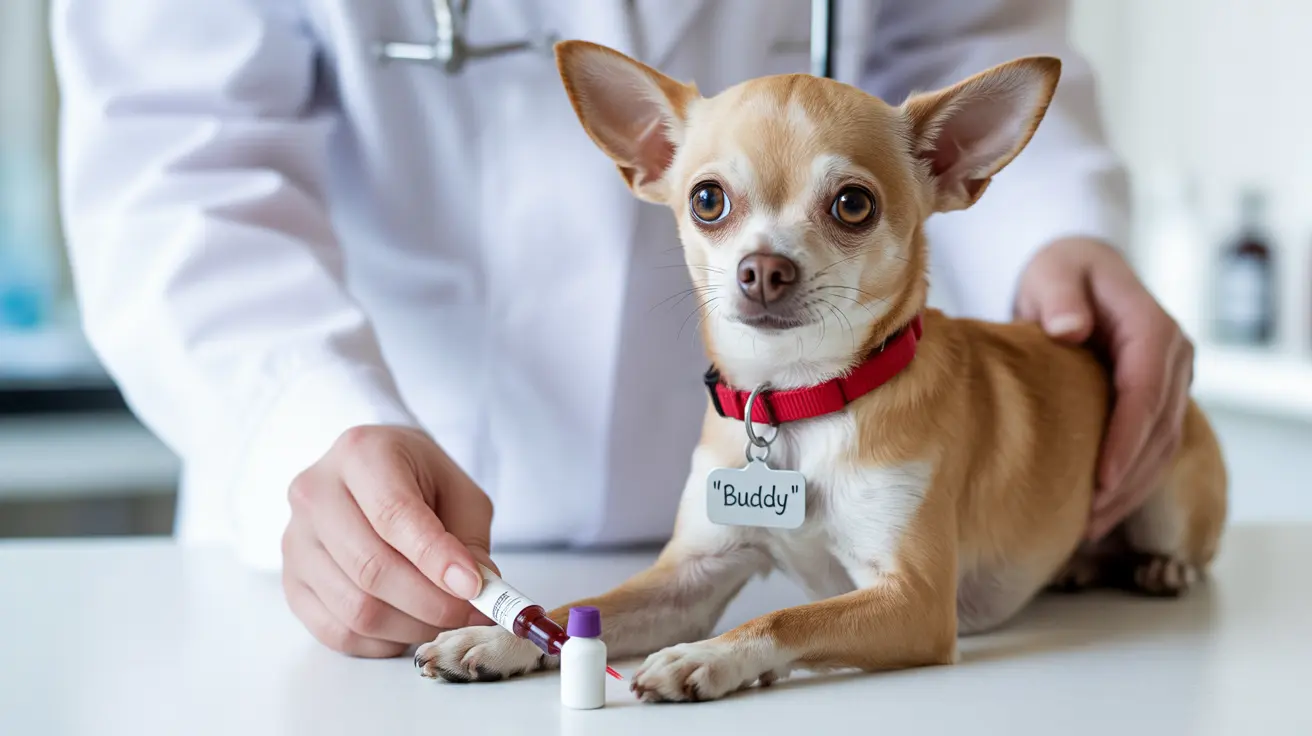When it comes to protecting your dog's health, understanding their immunity levels is crucial. Titer tests for dogs have become an increasingly popular way to measure your pet's protection against various diseases, offering a scientific approach to vaccination decisions. This comprehensive guide will explain everything you need to know about titer testing and how it can benefit your furry friend.
A titer test provides valuable insights into your dog's immune system by measuring the concentration of disease-fighting antibodies in their blood. This information helps veterinarians make informed decisions about vaccination schedules and ensures your pet maintains optimal protection against dangerous diseases.
How Titer Tests Work
Titer tests involve a simple blood draw from your dog, which is then analyzed in a laboratory setting. The blood sample undergoes a series of dilutions to measure the concentration of antibodies present. These antibody levels are expressed as ratios, such as 1:2 or 1:32, with higher numbers indicating stronger immunity against specific diseases.
The test primarily focuses on core canine diseases, including:
- Distemper
- Parvovirus
- Adenovirus/hepatitis
- Rabies (in some cases)
Benefits of Titer Testing
Titer testing offers several advantages over traditional vaccination schedules:
- Prevents unnecessary vaccinations
- Provides personalized immunity assessment
- Confirms successful vaccination response
- Helps determine protection levels in dogs with unknown medical histories
- Reduces the risk of adverse vaccine reactions
When to Consider Titer Testing
Certain situations make titer testing particularly valuable:
- Dogs with previous vaccine reactions
- Pets with compromised immune systems
- Recently adopted adult dogs
- Animals on immunosuppressive medications
- Frequently traveling dogs
- Senior pets
Understanding Test Results
When interpreting titer test results, veterinarians look for specific threshold values that indicate protective immunity. These thresholds vary by disease, and results above these levels suggest your dog has adequate protection. Lower values might indicate the need for a booster vaccination.
It's important to note that different laboratories may use varying measurement scales, but your veterinarian can help interpret the results specifically for your pet.
Cost and Availability Considerations
While titer tests typically cost more than standard vaccinations, many pet owners find the investment worthwhile for the detailed information they provide about their dog's immunity. Not all veterinary clinics offer titer testing in-house, but the service is becoming increasingly available as demand grows.
Frequently Asked Questions
What is a titer test for dogs, and how does it measure immunity?
A titer test is a blood test that measures the concentration of antibodies in your dog's blood. These antibodies indicate immunity against specific diseases, either from previous vaccinations or natural exposure. The test involves diluting the blood sample repeatedly until antibodies can no longer be detected, providing a numerical measure of immunity levels.
How often should I perform a titer test for my dog to ensure they have adequate protection against core diseases?
Most veterinarians recommend annual titer testing for core diseases. However, some dogs maintain strong immunity for several years or even their lifetime after initial vaccinations. Your veterinarian can help determine the best testing schedule based on your dog's individual health history and risk factors.
Can titer tests replace regular vaccinations for diseases like rabies and parvovirus?
While titer tests can demonstrate immunity levels, they may not always be legally acceptable alternatives to required vaccinations, particularly for rabies. Many jurisdictions require proof of vaccination regardless of titer results. However, titer tests can help determine the necessity of other non-required vaccine boosters.
What are the benefits of using titer tests instead of following a standard vaccination schedule for my dog?
Titer testing provides a personalized approach to vaccination by measuring actual immunity levels rather than following a one-size-fits-all schedule. This can prevent unnecessary vaccinations, reduce the risk of adverse reactions, and ensure your dog maintains appropriate protection against diseases.
How do I interpret the results of a titer test to determine if my dog needs a booster shot?
Your veterinarian will compare your dog's test results to established protective threshold levels for each disease. Results above these thresholds indicate adequate immunity, while results below suggest a booster may be necessary. The interpretation can vary by disease and laboratory, so professional guidance is essential.






